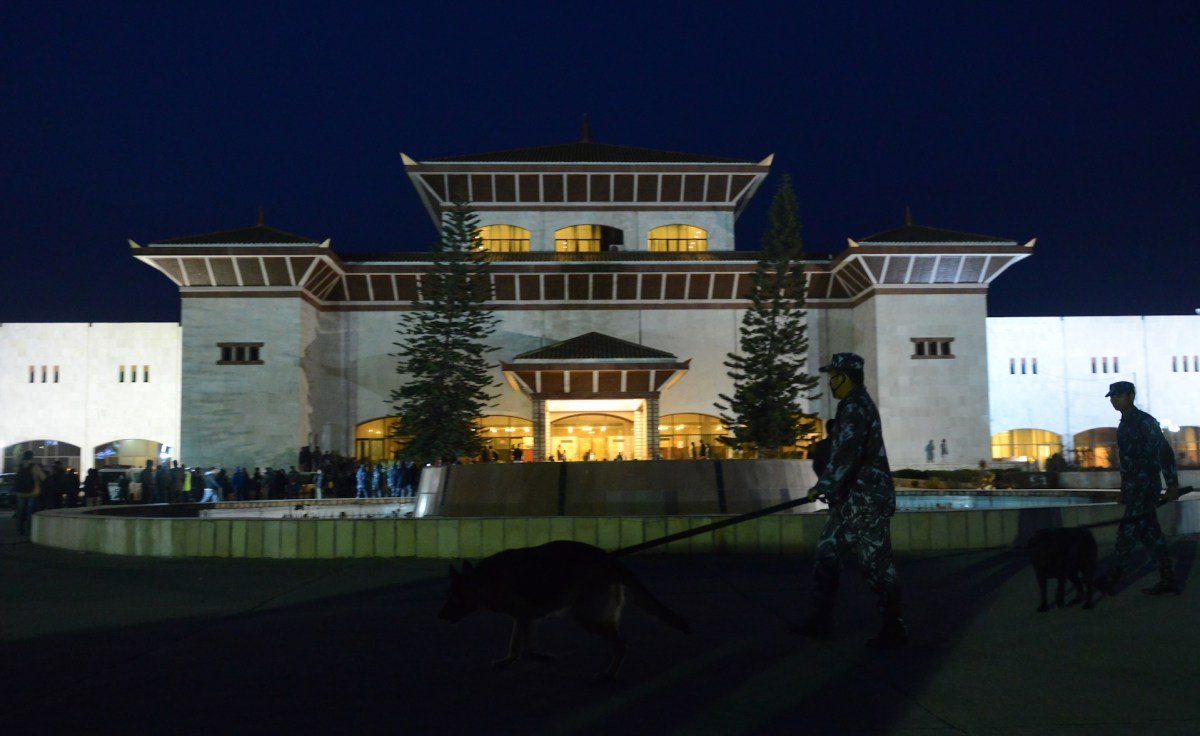Nepal has ordered web service suppliers to dam entry to main social media platforms, together with Fb, Instagram, YouTube, and X, after the businesses did not adjust to native registration guidelines — drawing criticism from media rights teams and elevating issues over censorship and free expression.
On Thursday, Nepal’s Ministry of Communication and Data Expertise directed the Nepal Telecommunications Authority to instruct web service suppliers to limit entry to 26 social media platforms altogether. The transfer adopted a gathering of ministry officers earlier within the day.
Nepal has an internet penetration rate of over 90%, in line with information from the Nepal Telecommunications Authority. Amongst social media customers within the nation, 87% use Fb, adopted by 6% on X and 5% on YouTube, the latest figures from internet analytics agency Statcounter recommend.
The listing of affected platforms consists of Discord, Fb, Instagram, Messenger, WeChat, Reddit, Snapchat, YouTube, and X. The choice follows an August 25 directive that gave overseas social media corporations simply seven days to register their operations in Nepal and assign an area contact particular person.
Media advocacy teams and civil society organizations have criticized the transfer. The choice would “severely hinder journalists’ work and other people’s entry to information and knowledge,” said the Committee to Shield Journalists, a New York-based nonprofit. The Federation of Nepali Journalists additionally condemned the measure, saying it “undermines press freedom and residents’ proper to info.”
Thursday’s choice comes weeks after Nepal’s Supreme Courtroom upheld the federal government’s native registration requirement final month, ruling that it was geared toward curbing misinformation. Nonetheless, the court docket didn’t explicitly order the federal government to ban platforms that did not register, as a substitute directing officers to “make applicable authorized preparations instantly, throughout the framework of the legislation.”
Notably, TikTok and Russia’s Viber are among the many social media apps not affected by the most recent order; the federal government mentioned these platforms have already adopted the foundations and registered themselves within the nation.
Techcrunch occasion
San Francisco
|
October 27-29, 2025
“This can be very troubling that Nepal has chosen to dam entry to complete social media and internet providers just because they haven’t registered with the federal government,” mentioned Raman Jit Singh Chima, Asia Pacific Coverage director and World Cybersecurity lead at Entry Now. He in contrast the strategy to “the structure of censorship seen within the Folks’s Republic of China’s Nice Firewall mannequin of digital authoritarianism — a path wholly at odds with Nepal’s democratic aspirations and constitutional ensures.”
Communication and Data Expertise Minister Prithvi Subba Gurung informed reporters that the federal government had given platforms ample time to register in Nepal and had made repeated requests, together with to Meta, however they didn’t comply.
Meta, in addition to Google and Snap, didn’t instantly reply to requests for remark.
Entry to the platforms could be restored as soon as they register within the nation, in line with a public notice (PDF) issued by the Ministry of Communication and Data Expertise.
Chima argued that “Nepal ought to publish all blocking orders, restore entry, and shift to a legislative course of that narrows imprecise prohibitions and builds in due course of, transparency and significant session.”
He added that with out clear enchantment or impartial oversight, the directive offers the federal government “sweeping powers to droop providers, order removals, and deputise native ‘grievance’ and ‘self-regulation’ officers inside corporations.”
“That invitations over-blocking and stress on corporations to take down lawful content material,” he continued.
Earlier this 12 months, Nepal’s authorities faced public backlash over a proposed social media invoice that’s nonetheless pending approval. The laws consists of provisions for imprisonment and fines for posts “deemed towards nationwide sovereignty or curiosity.” The proposal “threatens to severely undermine press freedom and digital expression,” the Worldwide Federation of Journalists mentioned.
Responding to early criticism of the proposed laws, Minister Gurung mentioned the federal government had “no intention of curbing freedom of expression.”
Nonetheless, the invoice would additionally authorize the federal government to order social media platforms to take away sure posts, with noncompliance probably leading to fines.
A spokesperson for Nepal’s Ministry of Communication and Data Expertise didn’t reply to a request for remark in regards to the blocking choice.
